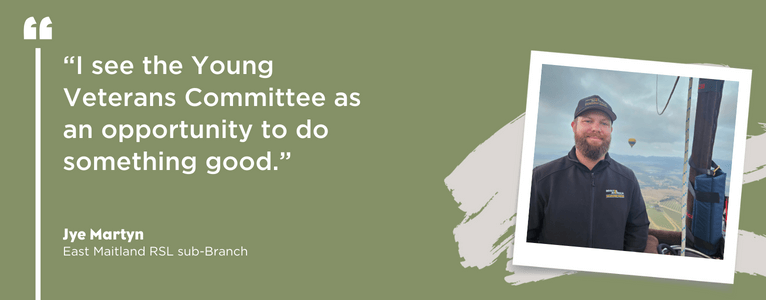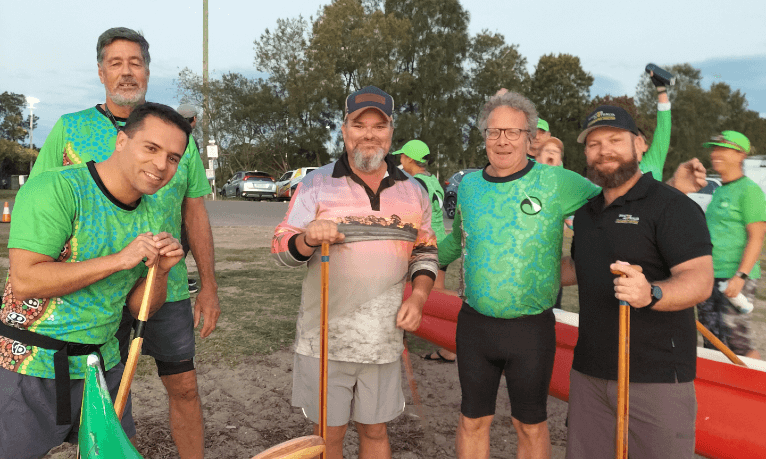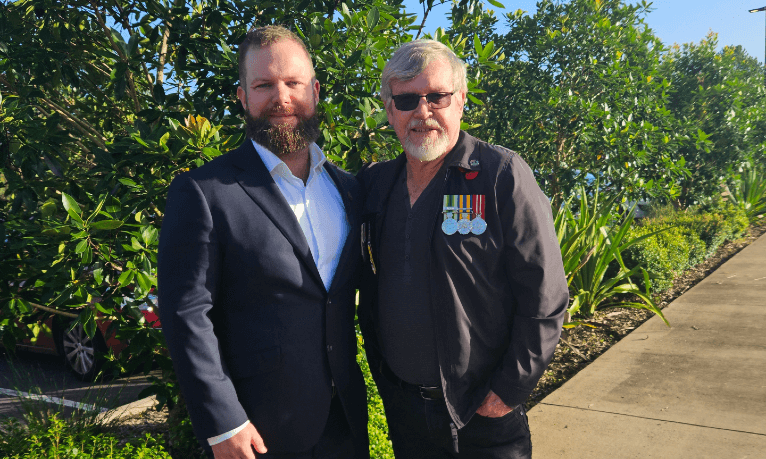What Jye Martyn wishes he’d known about transitioning out of Defence

Air Force veteran and RSL NSW Young Veterans Committee member Jye Martyn stresses the importance of human connection when transitioning out of Defence.
At a glance:
- Jye Martyn followed in his family’s footsteps to become the third generation to join the RAAF.
- His transition out of Defence brought many challenges, but by surrounding himself with a strong support system and community, it was relatively smooth sailing.
- After getting involved as a volunteer to help other young veterans, Martyn landed his dream job with Invictus Australia, saying “I get to bring my two passions together: social connections and sport”.
- Now, Martyn is an active member of the RSL NSW Young Veterans Committee, where he provides a voice for young veterans.
Jye Martyn has forged a career firmly grounded in his passions, navigating a path characterised by ongoing change. One unwavering constant, however, has been his profound commitment to fostering meaningful connections and providing a voice for young veterans.
In our recent conversation with Martyn, a valued member of the RSL NSW Young Veterans Committee (YVC), we delved into his experiences in Defence and the pivotal moments that helped shape where he is today.
Martyn sheds light on the challenges that come with change, sharing personal coping mechanisms and reflecting on the things he wishes he’d known about transitioning out of Defence.
Generational legacy
For Martyn, it wasn’t a moment or experience that promoted him to pursue a career in Defence – it was family.
“My dad served over 25 years in the Air Force so I grew up around it. All I wanted was to work on amazing aircraft and do what my dad did.
“I found out that my grandfather was also in the Air Force so I was going to be a third generation. After I finished high school in 2007, I joined six months later. I achieved my dream job by the age of 19.”

A value-driven career
“I joined as an armament technician and my role consisted of working on the weapons systems of military aircraft,” explains Martyn. “We were working on the F/A-18 Hornet – missiles, guns, bombs, ejection seats – anything that had an explosive component.
“We’d load guns for the pilots and do a lot of deep-level maintenance back in the workshop. I absolutely loved it.
“But as the situation in the Middle East changed, I began to wonder whether a role as an armament technician was for me.
“An opportunity came up to go into bomb disposal instead, which made me much more comfortable. So I made the move back to Sydney.
“Overall, it was a lot of fun with all the boys in the unit, and I served on two overseas operations to the Middle East and one to Bougainville.”
He reflects on one stand-out moment.
“The best thing I ever did in Defence was getting rid of World War II bombs that were left by the Americans – we got to see a part of history.”

The power of community
After almost 12 years in Defence, Martyn was discharged due to a spinal injury – something that set him on yet another different path.
“I ended up having spinal fusion surgery at the age of 29 and I thought my life was going to undergo drastic change. I was very sporty, loved being competitive and trying new things.
“I was always drawn towards bringing people together so when I was discharged, I naturally progressed into work that brings people together.”
This work took on a domino effect, quickly moving from volunteering to a role as Regional Manager for Invictus Australia.
“I get to bring my two passions together: social connections and sport,” he explains.
A voice for young veterans
A significant part of Martyn’s work in the community has been as a member of the YVC.
“I see the Young Veterans Committee as an opportunity to do something good. It is so important because support is often limited to the coast and cities, so the work that RSL NSW does in rural communities is vital.
“It’s great to be a part of a small group of passionate individuals. RSL NSW wants to hear from us; we actively give advice to RSL NSW Board members and represent the young veteran community.”

What I wish I’d known
Amid the continuous changes in his life, Martyn reflects on the importance of maintaining a positive outlook and prioritising mental wellbeing. A pivotal moment in his journey involved a decision he initially hadn’t anticipated: pursuing a university degree.
“The best thing I ever did was go to university. I had my surgery at the beginning of 2019 and began my psychology degree in 2020. I thought, I’ve got to do something completely different. I wanted to use my experience being medically discharged to help others.”
University not only served as a source of motivation for Martyn, enabling him to explore an alternative career, but it also provided him with a sense of belonging to a new community.
“University life wrapped around me and I entered another big support system.
“When people are transitioning to civilian life, they don’t know what’s next. I say to people all the time when I’m working with them, if you get the chance to, go and study. Be productive. Work towards something, because that will take your focus off the transition.”
Ultimately, Martyn says having this knowledge at an earlier stage in his transition period would have had a profound effect on his mental health.
“When you leave Defence, you lose that community. So put yourself into a new one, whether it’s TAFE, university or a sporting team.”






